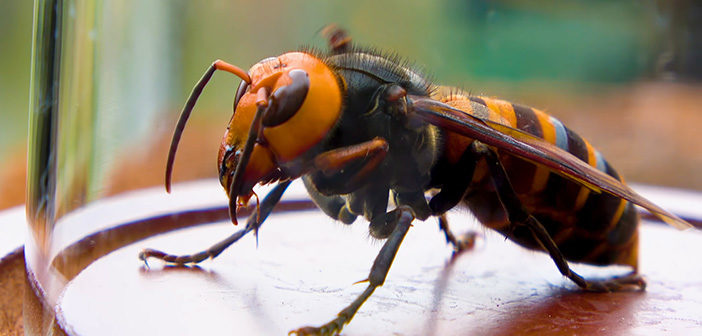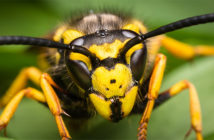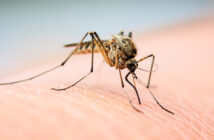An invasive, predatory insect dubbed the “murder hornet,” has been discovered in Washington state near the Canadian border, where they could potentially pose a threat to humans and the beekeeping industry.
Reuters reported that the stinging Vespa mandarinia can grow as large as 6.4 cm in length and is native to Southeast Asia, China and Taiwan. It was first discovered in Blaine, Washington, in December by a homeowner, according to Sven-Erik Spichiger, managing entomologist at the Washington state Agriculture Department.
He said: “An Asian giant hornet can sting you multiple times and deliver larger doses of venom just because of the size of them. The venom itself is fairly toxic and creates localised necrosis around the wound so you’ll see melting flesh around the wound.
“What we’re told from the literature is that most people can survive one or two stings,” he said. “But if you sustain multiple stings, the necrosis and the venom will actually start getting into your bloodstream and will start working on your organs. And multiple stings could literally be fatal.”
The Washington State Department of Agriculture said that while it has received hundreds of reports, there have only been two confirmed sightings in Washington State.
Aside from the danger to humans, the Murder Hornet presents a danger to agriculture and the apiary industry, Mr Spichiger said, because the insect is known to attack honey bees, with a few of the hornets capable of wiping out an entire hive in hours.
“The hornets enter a ‘slaughter phase’ where they kill bees by decapitating them,” he said. “They then defend the hive as their own, taking the brood to feed their own young.”




